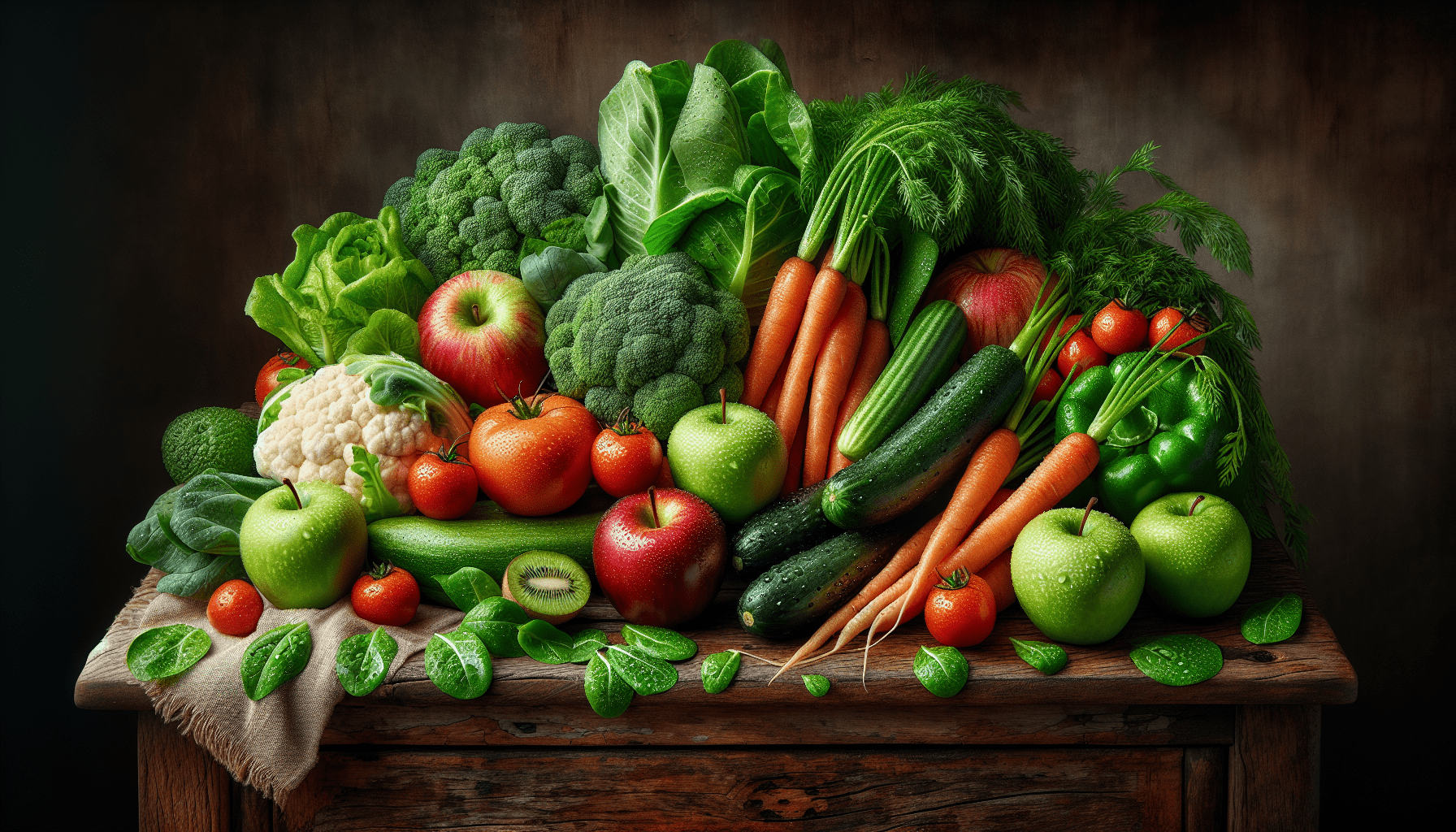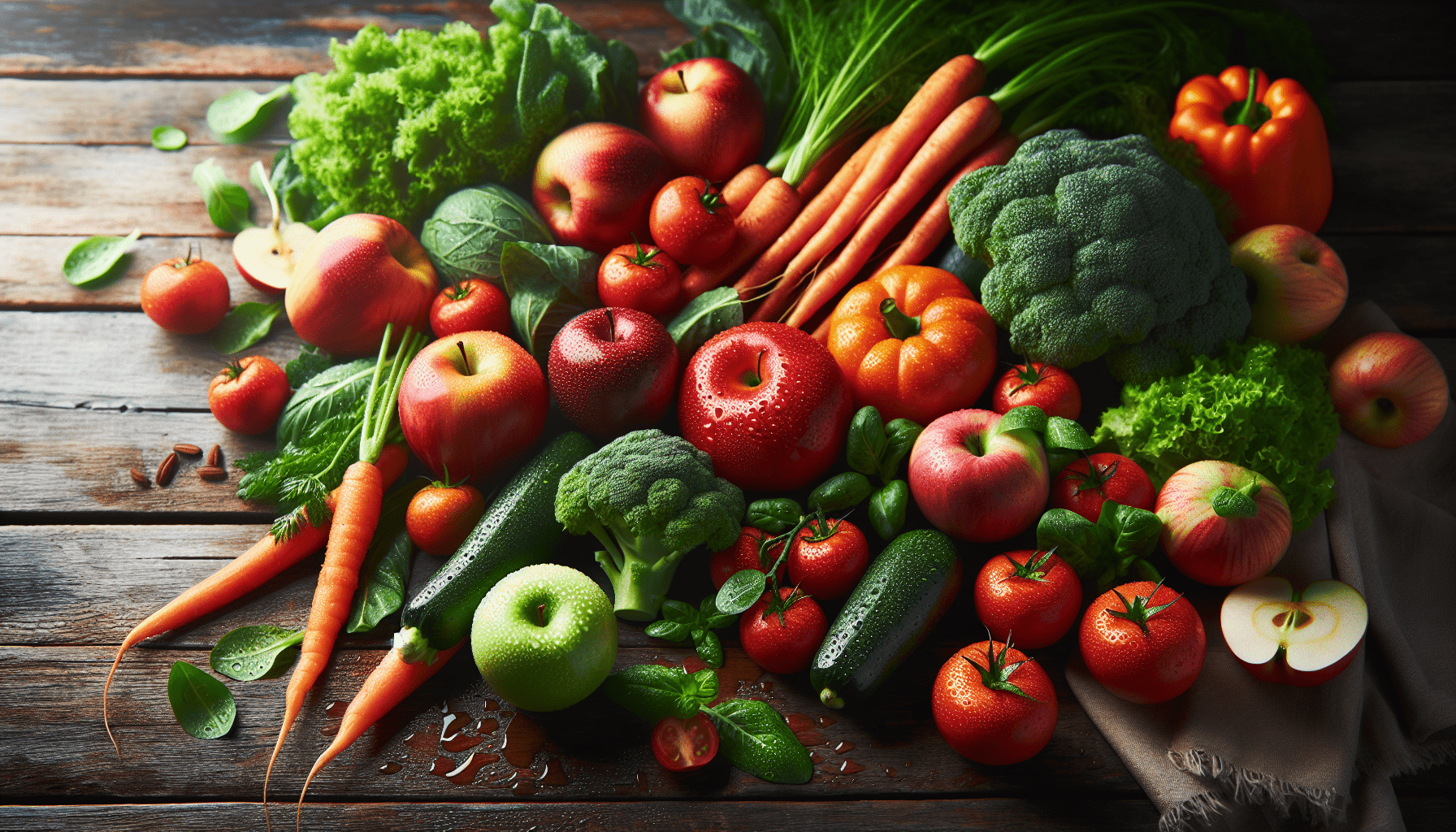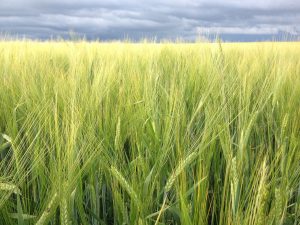In “The Benefits of Eating Organic Food,” we explore the various advantages that come with incorporating organic foods into our diets. By choosing organic, we not only ensure that we are consuming fewer pesticides and harmful chemicals, but we also support sustainable farming practices that are better for our environment. Our health can improve through higher nutritional content in organic produce, and we can enjoy richer, more authentic flavors. Ultimately, making the switch to organic food benefits our bodies and our planet, fostering a healthier, more sustainable future for all of us. Have you ever wondered why there’s so much buzz around eating organic food? We have, and it’s a question that’s more relevant than ever in today’s health-conscious and environmentally aware society. Exploring the benefits of eating organic food can open our eyes to the many advantages of making this lifestyle choice.

What Does Organic Mean?
To fully comprehend the benefits, we need to first understand what “organic” means. Organic food is produced using methods that do not involve modern synthetic inputs such as synthetic pesticides and chemical fertilizers. Organic farming emphasizes recycling resources, fostering ecological balance, and conserving biodiversity.
Standards and Labeling
For food to be labeled as organic, it must meet certain standards set by regulatory bodies. In the United States, the USDA sets these standards. Fruits, vegetables, grains, dairy products, and meat can all be organically grown. These standards ensure that products are grown and processed according to strict guidelines that limit the use of pesticides, fertilizers, and synthetic substances.
Benefits to Our Health
The primary reason many of us turn to organic food is for the health benefits. Here’s a closer look at how organic foods can lead to a healthier life.
Higher Nutrient Levels
Organic foods often have higher levels of essential nutrients. Fruits and vegetables grown organically can have higher levels of vitamins, minerals, antioxidants, and flavonoids. This is because organic farming practices aim to nourish the soil, which in turn nourishes the plants.
| Nutrient | Organic Farming Impact |
|---|---|
| Vitamin C | Organic citrus fruits have higher levels |
| Antioxidants | Higher in berries, leafy greens, and nuts |
| Omega-3 Fatty Acids | Higher in organic meat, eggs, and dairy |
Fewer Pesticides
We are exposed to fewer pesticides when eating organic. Research has shown that organically grown produce has significantly lower pesticide residues compared to conventionally grown produce. Long-term exposure to pesticides can lead to chronic health issues, including hormonal disruptions and cancer.
Antibiotic Resistance
Organic meat and dairy come from animals that are not given antibiotics, growth hormones, or fed animal byproducts. This practice is crucial in reducing the risk of antibiotic resistance, a significant public health concern.
Environmental Benefits
Organic farming is not just good for us; it’s also beneficial for the planet.
Soil Health
Organic farming utilizes crop rotations, composting, and manure to maintain soil health. This helps in maintaining high levels of organic matter, leading to better soil structure, water retention, and nutrient availability.
Reduced Water Pollution
Because organic farming uses fewer synthetic fertilizers and pesticides, it results in less water pollution. This helps in protecting our water bodies and the organisms that live in them.
Biodiversity
Organic farms support more biodiversity. By limiting chemical use and promoting diverse crop rotations, organic farms create a more balanced ecosystem, encouraging beneficial insects and animals.
Taste and Quality
Many of us find that organic food simply tastes better. This could be due to the reduced use of chemicals, allowing the natural flavors to come through. Additionally, organic produce is often fresher, as it has not been treated with preservatives to extend shelf life.
Freshness
Organic foods are often fresher when they come to market because they don’t contain preservatives that extend shelf life. Fresher produce not only tastes better but also retains more nutrients.
Flavor Profile
Organic fruits and vegetables often have a richer, more authentic taste as they’re grown using farming practices that prioritize quality over quantity.

Economic Considerations
While organic food can be more expensive, we need to weigh its cost against its benefits. Organic farming practices use more labor-intensive methods, which can lead to higher prices. However, it’s important to consider what we’re willing to spend for better health and a healthier planet.
Long-term Savings
Eating organic can lead to long-term savings in terms of healthcare costs. By reducing our intake of pesticides and chemicals, we’re reducing our risk of chronic health conditions.
| Cost Aspect | Consideration |
|---|---|
| Immediate Expense | Higher price per unit purchase |
| Long-term Health Savings | Reduced medical bills due to healthier lifestyle |
| Environmental Costs | Investing in environmental sustainability |
Challenges and Misconceptions
While organic foods offer numerous benefits, there are also challenges and misconceptions that should be addressed.
Accessibility
One of the primary challenges is accessibility. Organic food can be more expensive and harder to find in certain areas. Community-supported agriculture (CSA) programs and farmers markets are helping to make organic foods more accessible.
Misconceptions About Organic Food
There are also several misconceptions about organic food. Some people believe that organic means 100% pesticide-free or that it’s always healthier. While organic farming does use fewer and natural pesticides, it’s not entirely pesticide-free. Additionally, eating organic doesn’t automatically mean all your dietary choices are healthy; a balanced diet is still key.
How to Incorporate Organic Food into Our Diet
Incorporating organic food into our diet doesn’t have to be difficult or expensive. Here are some practical tips:
Start Small
We don’t have to go 100% organic overnight. Start by choosing a few key products like apples, strawberries, or milk to switch to organic. The Environmental Working Group publishes a yearly “Dirty Dozen” list identifying foods with the highest pesticide residues, which is a good starting point.
Budget-Friendly Choices
Look for ways to make buying organic more budget-friendly. This could include buying seasonal produce, looking for sales, or purchasing in bulk.
Local Options
Consider joining a CSA or shopping at local farmers markets. These options provide fresh, local, and often more affordable organic produce.
Grow Our Own
If possible, growing our own organic produce is a great way to ensure we have access to organic food. Even a small garden can produce a surprising amount of healthy, organic vegetables and herbs.
Conclusion: Reaping the Benefits
The benefits of eating organic food are numerous, extending from personal health to environmental sustainability. By choosing organic, we contribute to a more sustainable food system, enjoy foods that are richer in nutrients, and experience flavors as they were meant to be.
While the cost and accessibility may pose challenges, there are practical steps we can take to incorporate more organic foods into our diet. Start small, be strategic about spending, and consider local options. As we make these changes, we not only improve our health but also support the planet.
So, next time we’re at the grocery store or market, let’s think about choosing organic and enjoy the many benefits it brings.
Together, we can make a difference in our health and the health of our planet. Happy organic eating!



